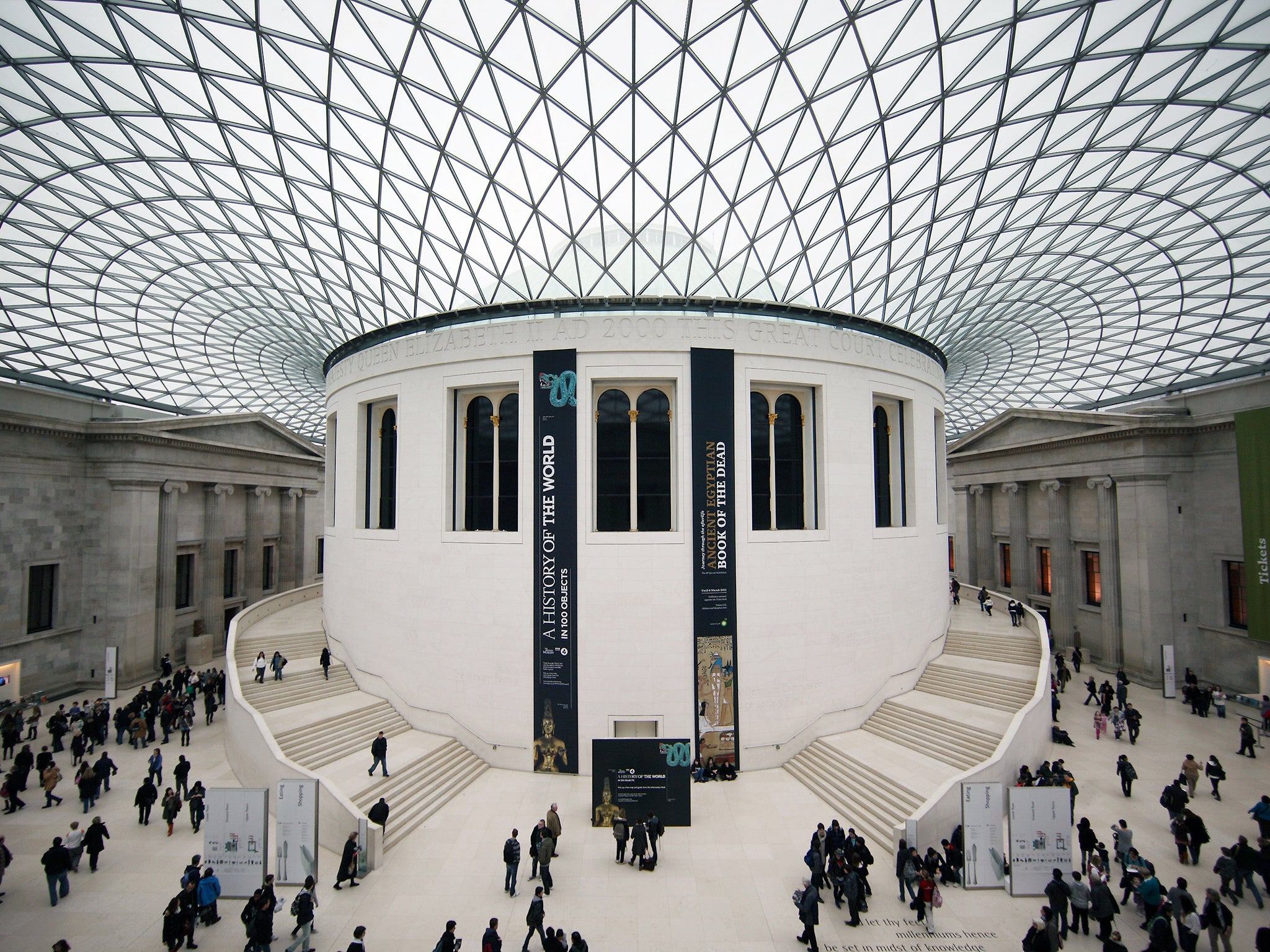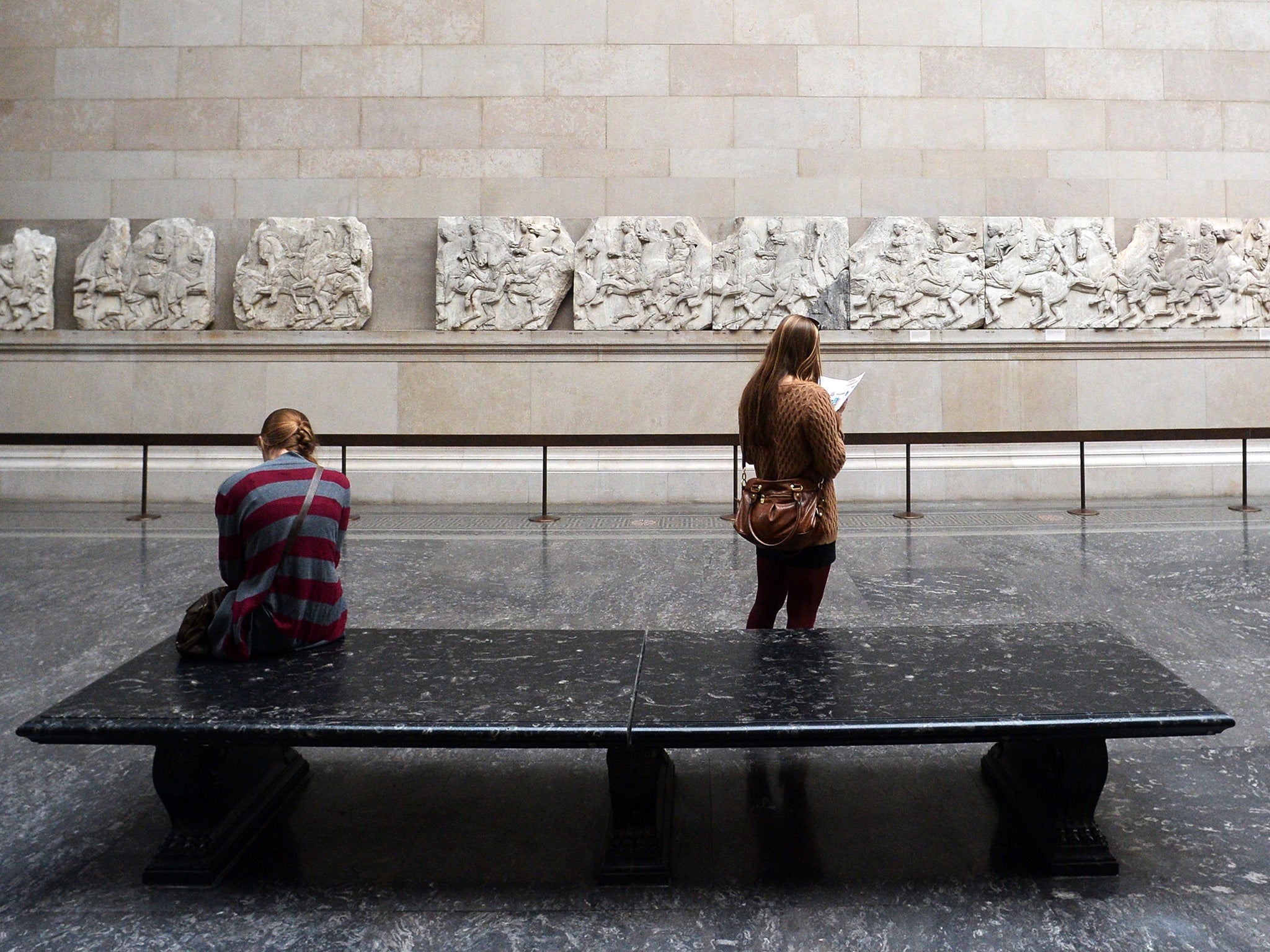Your support helps us to tell the story
From reproductive rights to climate change to Big Tech, The Independent is on the ground when the story is developing. Whether it's investigating the financials of Elon Musk's pro-Trump PAC or producing our latest documentary, 'The A Word', which shines a light on the American women fighting for reproductive rights, we know how important it is to parse out the facts from the messaging.
At such a critical moment in US history, we need reporters on the ground. Your donation allows us to keep sending journalists to speak to both sides of the story.
The Independent is trusted by Americans across the entire political spectrum. And unlike many other quality news outlets, we choose not to lock Americans out of our reporting and analysis with paywalls. We believe quality journalism should be available to everyone, paid for by those who can afford it.
Your support makes all the difference.Greece’s government has demanded Britain open negotiations over the return of the Parthenon Marbles, the set of disputed classical sculptures held in the British Museum.
The marble statues, also sometimes known as the Elgin Marbles after the man who brought them to Britain, were a part of the Acropolis in Athens before they were removed in the early 1800s.
In a letter to the culture secretary, Greek culture minister Lydia Koniordou invited UK officials to meetings in Greece to discuss the statues’ return.
The timing of the move is significant because it comes as Britain is locked in Brexit talks and in desperate need of allies around Europe.
Notably, the Greek parliament will have to ratify any future trade deal between the UK and the EU, and the Greek government will have to sign off any withdrawal agreement as part of the European Council.
Lord Elgin, the peer who removed the statues from the Parthenon temple, claimed that he received permission from the authorities of the Ottoman Empire, who occupied Greece at the time, to take them.
While this fact is in itself disputed, Greeks who demand the statues’ return say the occupying power did not have the legitimacy to give away such a central part of Greek cultural heritage anyway.

The return of the statues is one of the longest running cultural heritage disputes on the planet, with their removal from Athens being denounced by some almost immediately in the 1800s.
Among critics of the British possession of the marbles was poet Lord Byron, who himself fought and died in the Greek war of independence from Ottoman Turkey.
Defenders of keeping the statues in Britain have argued that returning them would set a precedent and lead to the potential return of a vast array of items from many of the world’s great museums, some of which were acquired in a similar manner.
Polling conducted in 2014 suggested the British public mostly back the marbles’ return or are largely ambivalent: YouGov found 37 per cent think the statues should go back to Greece, 32 per cent did not mind either way, while 23 per cent said they should remain in Britain. Seven per cent said they did not know.
The Parthenon sculptures in London are an important representation of ancient Athenian civilisation in the context of world history
Labour leader Jeremy Corbyn has previously indicated that he would return the statues to Greece.
A government spokesperson said: “The Parthenon sculptures are the legal property of the British Museum. They are free of charge to view and are visited by people from all over the world.
“Decisions relating to their care are taken by the trustees of the British Museum, free from political interference.”
A spokesperson for the British Museum said the Parthenon sculptures were “a part of the world’s shared heritage and transcend political boundaries” and were a part of “the story of cultural achievement throughout the world” which the institution’s exhibits tell.
“The Acropolis Museum allows the Parthenon sculptures that are in Athens (approximately half of what survives from the ancient world) to be appreciated against the backdrop of Athenian history,” they said.
“The Parthenon sculptures in London are an important representation of ancient Athenian civilisation in the context of world history.
“Each year millions of visitors, free of charge, admire the artistry of the sculptures and gain insight into how ancient Greece influenced and was influenced by the other civilisations that it encountered.
“The trustees firmly believe that there is a positive advantage and public benefit in having the sculptures divided between two great museums, each telling a complementary but different story.”

Join our commenting forum
Join thought-provoking conversations, follow other Independent readers and see their replies
Comments